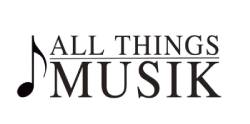How Old Should My Child Be for Piano Lessons?
Three Tests to Consider If They’re Ready
By Emily Kline
The phone rings on a Friday afternoon and a curious dad asks me, “My daughter wants to take piano lessons but I think she’s too young. What age do you recommend kids start taking piano lessons?”
His common question doesn’t have a one size fits all answer but generally I recommend about age six. Of course we’ve all heard of child prodigies who started playing an instrument at age five or younger but those are the rare exceptions.
If your child is old enough to read, can focus for 30 minutes and knows the difference between the right and left hands, then chances are they’re ready to start piano lessons.
1. Is Your Child Old Enough to Read?
If your child can read basic words, letters and numbers on their own, they have a key ingredient in place for a successful piano start. This skill can be strengthened of course over time with parental and school involvement. During a typical piano lesson, a student will see more than just music notes. Numbers one through five appear in most beginners lesson books. Titles to songs and lyrics as well as some basic directions are on every page. The musical alphabet, “A” through “G” is one example of important letters they’ll encounter. During the lesson, teachers will often highlight words, letters and numbers or write them in with pencil. Many teachers require an “assignment notebook” where practice instructions and side work is recorded. Parents should review these notes with their student to ensure the child understands the words written. A child who struggles with reading words, letters and numbers could develop frustrations with piano lessons.
2. Can Your Child Sit at![]() the Piano for 30 Minutes?
the Piano for 30 Minutes?
Most piano teachers teach lessons for 30 minutes or more. For a new student, a 30 minute lesson is long enough. If your child is overly wiggly, can’t refocus after a gentle reminder or interrupts the lesson with non-piano topics, it’s probable they need to practice these skills in preparation for the start of piano lessons. Much of what a child learns about piano happens during practice sessions. Practicing for a minimum of 10-15 minutes at a time is a good way to strengthen their endurance and build focus during the early days of piano lessons. If your child likes to ask non-piano related questions, encourage them to limit their questions to one at the start of the lesson and one at the end. Good teachers understand children’s curiosity but teachers know you’re paying them to teach piano not to play “Twenty Questions.”
3. Does Your Child Know the Difference Between Their Right and Left Hand?
Most adults don’t think about this important milestone in a child’s development as critical for a successful piano experience. Piano is a two handed instrument with notes places on two “staffs” each “read” by a different hand. A teacher will refer to the right or left hand many times during a lesson. Testing your child and working on this skill together is vital before investing in lessons. Playing some games together will make reinforcing this skill fun.
What Should I Do If My Child Is Not Ready for Piano Lessons Yet?
If your child doesn’t pass these three tests then it’s time to help them in these areas while cultivating their interest in music. Reading with your child is a sure fire way to improve their reading skills. Make sure you mix into your reading routine stories about music and perseverance because those topics will reinforce instruction from the teacher during lessons. Also, having your child pick some of their books will give them a sense of ownership. Allowing your child to pick some of their music once they are well into their piano playing journey will help them maintain interest.
Sitting still is a skill kids need to learn just like any other skill. Like music lessons, there is no substitute for practice. Have them sit still for story time, meals, and hands-on activities like Play-doh or art work. Build up the time they sit still until 30 minutes is easy. Not only will this practice help prepare your child for piano lessons, but you’ll be glad the next time you’re with your kids at church service, a waiting room or a restaurant.
Like sitting still and learning to read, there is no shortcut to learning the difference between the right and left hand. Daily tests of their muscle memory and comprehension in the form of games can make this a fun exercise. Rewards, humor and positive reinforcement will be more effective than your expressions of disappointment or frustration. Your efforts here will make piano lessons more enjoyable and a confidence boosting experience for a child who doesn’t need to pause and think hard about what hand plays what staff.
Finally, make music a part of your family’s life. Take your children to concerts, enroll them in community education classes about music discovery, and sing along with them during road trips to name a few. Expose your child to many different musical genres. Find songs with fun beats, inspiring lyrics, catchy melodies and fascinating complex blends of sounds. Classical, pop, country, and jazz; you’ll never know what genre will motivate your child to practice and enjoy music for a lifetime. So get going and set your child up for a musical journey that will benefit them throughout their academic and personal lives!
